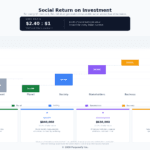Meta Invests $1 Billion in New AI Data Center in Wisconsin

• Meta commits more than $1 billion to a new AI-optimized data center in Wisconsin, alongside nearly $200 million in regional energy infrastructure upgrades.
• The project includes a $15 million contribution to an energy-assistance fund and 570 acres of wetland and prairie restoration in partnership with conservation groups.
• The development advances corporate-level water stewardship, clean-energy procurement, and LEED Gold design standards amid growing scrutiny of AI-driven data demand.
Wisconsin Breaks Ground as Meta Scales AI Capacity
Meta has begun construction of its thirtieth data center, a major expansion of the company’s North American infrastructure designed to support rapidly intensifying AI workloads. The location, selected for its grid reliability and skilled labor base, gives Meta a strategic anchor in the Midwest as competition accelerates in long-duration computing capacity, energy-efficient facilities, and water-resilient design.
Once fully operational, the Beaver Dam site will join Meta’s network of AI-optimized data centers built to train and deploy increasingly complex models. Company executives describe the facility as part of a broader shift toward high-density compute environments capable of supporting next-generation AI systems and platform-wide integration.
A Regional Bet Backed by Major Capital Allocation
Meta expects its investment in Beaver Dam to exceed $1 billion, a sum that includes construction, technology deployment, and long-term operational commitments. More than 1,000 skilled trade workers will be on site during peak construction, with around 100 permanent roles created once the facility goes live. The company is also underwriting almost $200 million in local energy infrastructure to support the added load. These funds will cover network upgrades, substations, and transmission lines — critical components as US utilities confront the combined rise of electrification, data demand, and AI-driven load growth.
In parallel, Meta is contributing $15 million to Alliant Energy’s Hometown Care Energy Fund, which helps households cover electricity costs during periods of high utility burden. The move positions the company within a broader US debate on energy equity as grid expansion becomes closely tied to new data center development.
Community and Workforce Support Initiatives
Beyond infrastructure, Meta plans to open its Data Center Community Action Grants program in Beaver Dam next year. The fund supports technology access, STEAM education, and community-oriented digital initiatives. The company is also rolling out free digital-skills training to local small businesses, with a focus on helping entrepreneurs integrate AI tools and adopt more efficient digital operations.
For municipal and regional stakeholders, these initiatives feed into a wider conversation on how digital-infrastructure developers can contribute to local economic resilience without exacerbating pressure on housing, water systems, and public services.
Water Stewardship Moves to the Forefront
Water use is emerging as a defining issue for AI data centers, and Meta is positioning Beaver Dam as a pilot for more responsible resource design. The facility will use dry-cooling technology, eliminating ongoing water demand for cooling operations. Meta also plans to restore 100 percent of the water consumed by the site to local watersheds through replenishment projects.
On campus, the company will implement rainwater capture, infiltration systems, water-efficient fixtures, and native landscaping to reduce irrigation needs. These measures reflect growing investor and regulatory attention to water disclosure, particularly under sustainability reporting frameworks that increasingly treat watershed impacts as financially material.
RELATED ARTICLE: Meta and XGS Energy Launch 150 MW Advanced Geothermal Project in New Mexico
570 Acres of Wetland and Prairie Restoration
In a partnership with Ducks Unlimited and other conservation groups, Meta is supporting the restoration of 570 acres of prairie and wetlands surrounding the Beaver Dam campus. Around 175 acres will be formally deeded to Ducks Unlimited. The effort converts previously degraded land into ecologically functional habitat that can support migratory birds, native plant species, and improved hydrological dynamics.
For C-suite leaders and investors, the restoration program signals the rising importance of biodiversity considerations in corporate climate strategies. The project sits within a wider policy environment shaped by emerging nature-risk disclosure expectations and the integration of ecosystem resilience into long-term land-use planning.
Clean Energy Procurement and Facility Standards
Meta states that the Beaver Dam data center’s electricity use will be matched with 100 percent clean and renewable energy. While details of future power-supply agreements were not disclosed, the company’s existing portfolio includes wind, solar, and energy-storage procurement in multiple regions. The new facility is also designed to achieve LEED Gold Certification, reflecting efficiency requirements that have become a competitive differentiator as data centers face scrutiny for energy intensity.
Why It Matters for Global ESG Stakeholders
The Beaver Dam project illustrates how large-scale AI expansion is reshaping the relationship between technology companies, utilities, regulators, and communities. For investors, the project highlights the capital intensity of AI-era infrastructure and the increasing weight placed on energy sourcing, water resilience, and nature restoration. For policymakers, it raises ongoing questions about how regional development aligns with grid capacity, land-use planning, and climate-aligned resource management.
As AI demand accelerates globally, the governance frameworks that guide data-center development — from energy markets to biodiversity commitments — are fast becoming central to corporate climate and sustainability strategy. Meta’s Wisconsin investment offers an early view of what that next phase looks like.
Follow ESG News on LinkedIn











